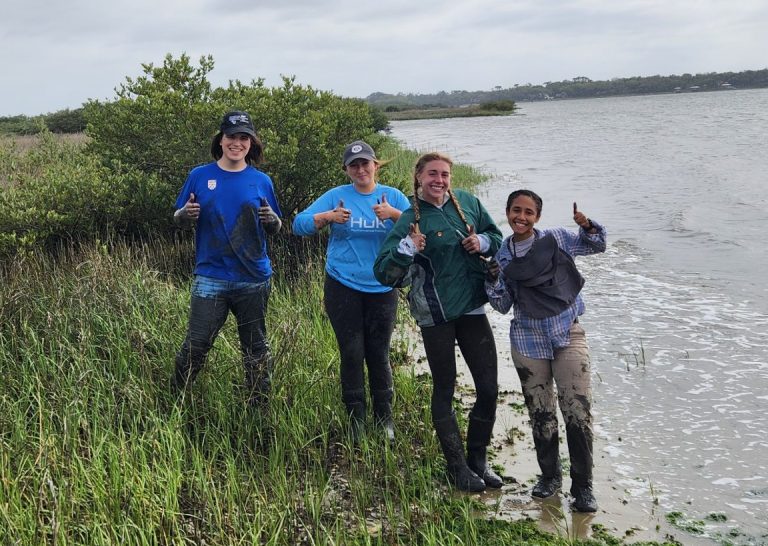In March, three undergraduate students got their first taste of what it’s like to do field research during a daylong field trip to St. Augustine research sites, organized by Ph.D. students Britney Hay and Adam Hymel from the UF Center for Coastal Solutions (CCS). Students Katie Austin, Molly Golding and Abigail Moore dipped their toes into the role of CCS interns for a day, learning the basics of field work with a crash course in marsh ecology.

Hay and Hymel, graduate students in the Altieri lab and Angelini lab, respectively, and University of Florida’s Department of Environmental Engineering Sciences, taught the students how to record data for biological surveys and showed them how to take soil samples.
“The experience sparked a deeper curiosity in wetland environments,” said Moore, who is studying marine biology. “While I am not an engineering student, I really appreciated getting an opportunity to take part in field work as it is helping me build a skill that will be instrumental to my future career goals.”
The training ignited a deeper interest in field work for Austin, who’s studying environmental engineering.
“It was my first time doing outside work that relates to environmental topics and environmental engineering,” said Austin. “This trip was beneficial to my professional development, as it has allowed me to get a glimpse of what research and data collection can be like. It also made me more interested in my major because I was able to observe and learn about a research project that is in line with what I plan on focusing on later in my career as an environmental engineer.”
—
By Megan Sam
